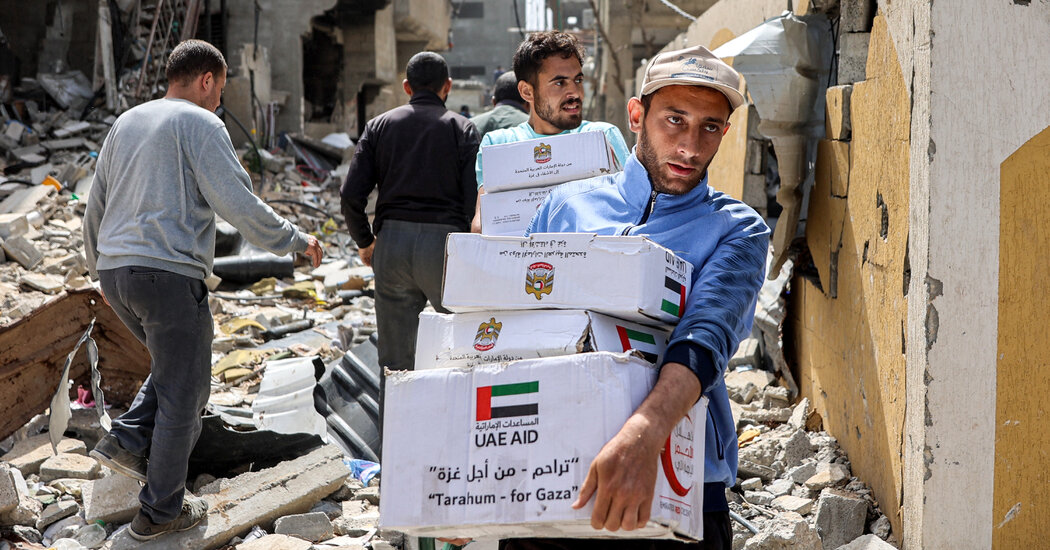The main UN coordinator for humanitarian aid in Gaza said Israel had taken steps to improve the delivery of humanitarian aid to the enclave, but warned that much more needed to be done to meet the huge need in the area.
Israel has announced efforts to increase the flow of aid to Gaza, including by opening an additional border crossing and accepting shipments at a nearby port. But the United Nations has warned with growing urgency that a famine is imminent and that deliveries are still below the level needed to stop the spread of hunger.
Aid coordinator Sigrid Kaag said in a Security Council briefing on Wednesday that while Israel has made efforts to increase the entry and distribution of aid, “further definitive and urgent steps are needed to set the course for a sustained flow of aid.” humanitarian and commercial goods to Gaza in terms of volume, need and scope.”
“Given the scale and scope of destruction and the scale of human suffering, every day counts,” he added.
According to UN data, the number of humanitarian trucks entering Gaza has increased, but only slightly. In the two weeks ending Monday, the last day for which data was available, an average of 195 trucks entered Gaza each day through the two main crossings in the territory's south.
That's slightly higher than the average of 185 trucks per day over the previous two weeks, but still well below the 300 food trucks the World Food Program estimates would be needed each day to begin meeting needs. primary people.
Ms. Kaag, a former Dutch finance minister and deputy prime minister, was appointed by the United Nations in December to improve efforts to deliver aid to Gaza. The role was outlined in a Security Council resolution that aimed to address the humanitarian crisis in Gaza, which has been under intense Israeli bombardment since Hamas-led attacks on October 7.
Countries including the United States have tried to find air and sea routes to Gaza, but aid groups say delivery by truck would be much more efficient. They described in depth the challenges of getting through Israeli security checkpoints and traveling through a war zone, including impassable roads, unexploded ordnance and fuel shortages. Israel has denied limiting aid, blaming U.N. agencies for bureaucratic delays.
Ms. Kaag said the United Nations was in contact with the Israeli government on urgent measures needed to improve the flow of aid, including easing procedures at Israeli checkpoints, repairing roads and allowing humanitarian convoys to move as expected.
Ms. Kaag's comments echoed those of President Biden's special envoy for humanitarian affairs in Gaza, David Satterfield, who on Tuesday said the volume of aid to Gaza has increased but that “much more aid is needed.”





